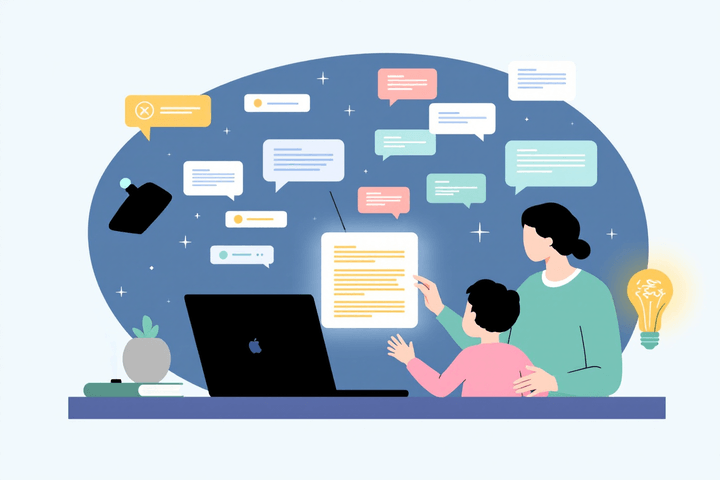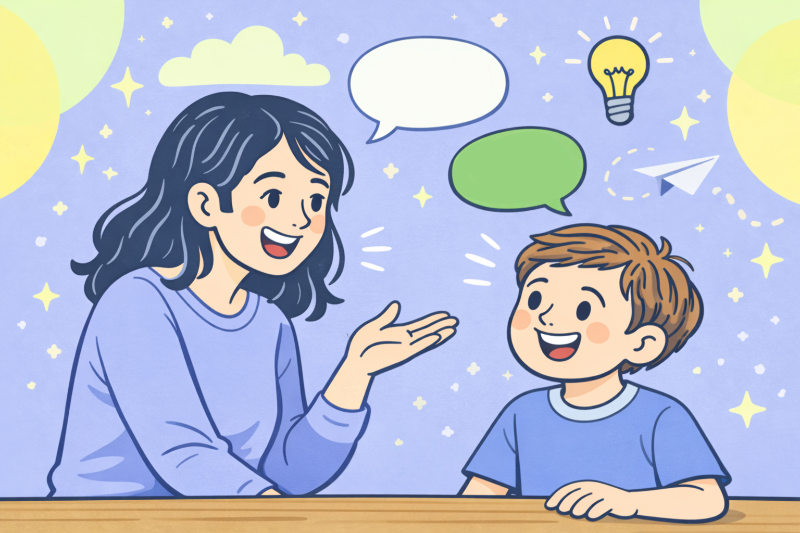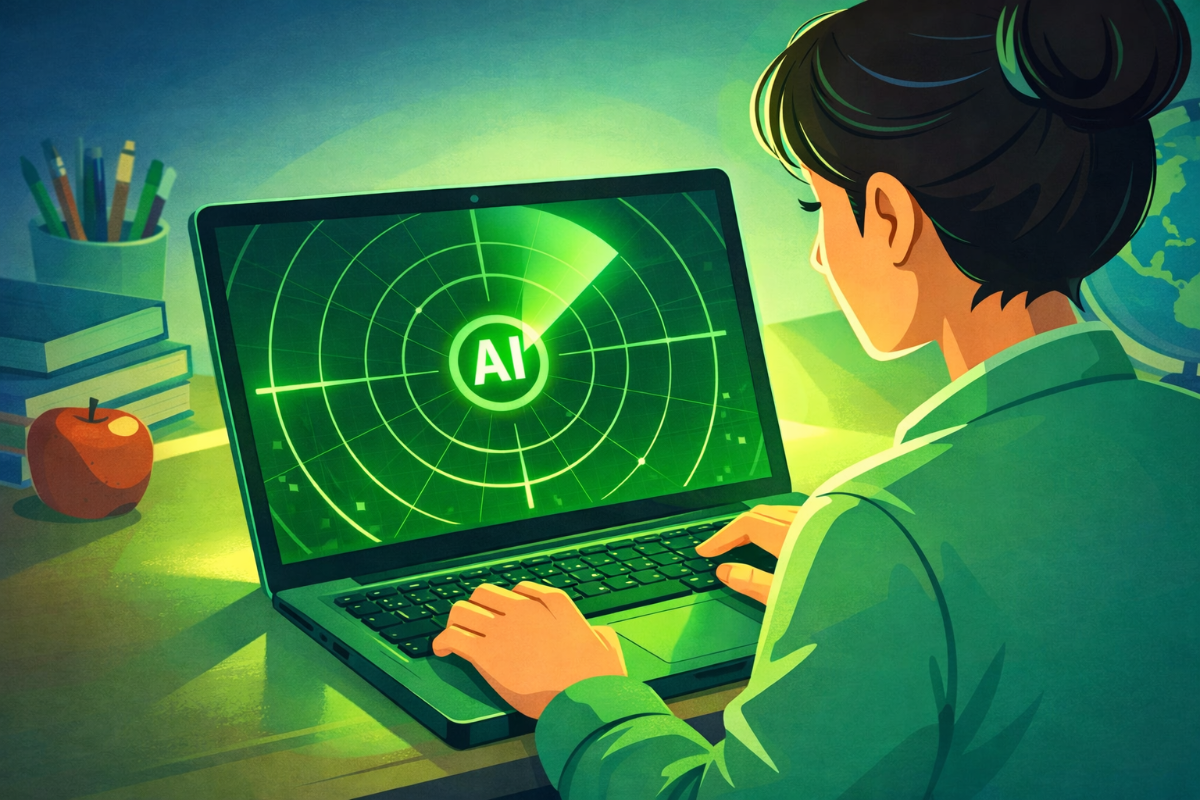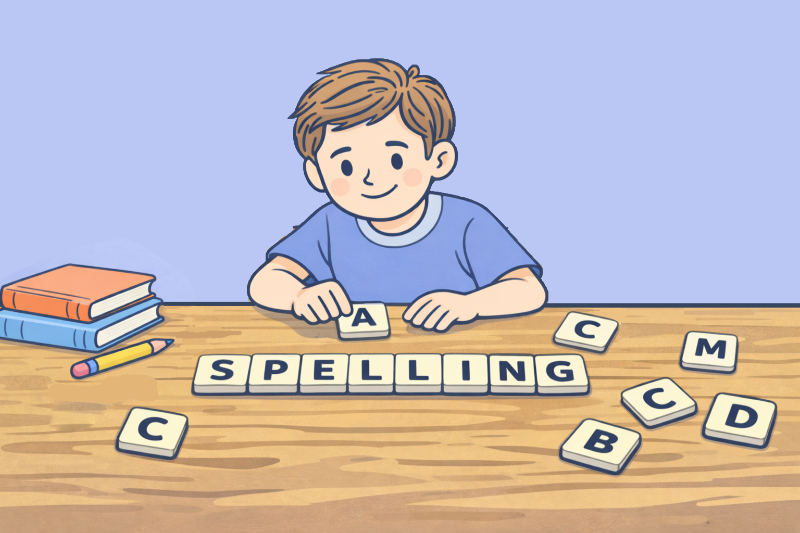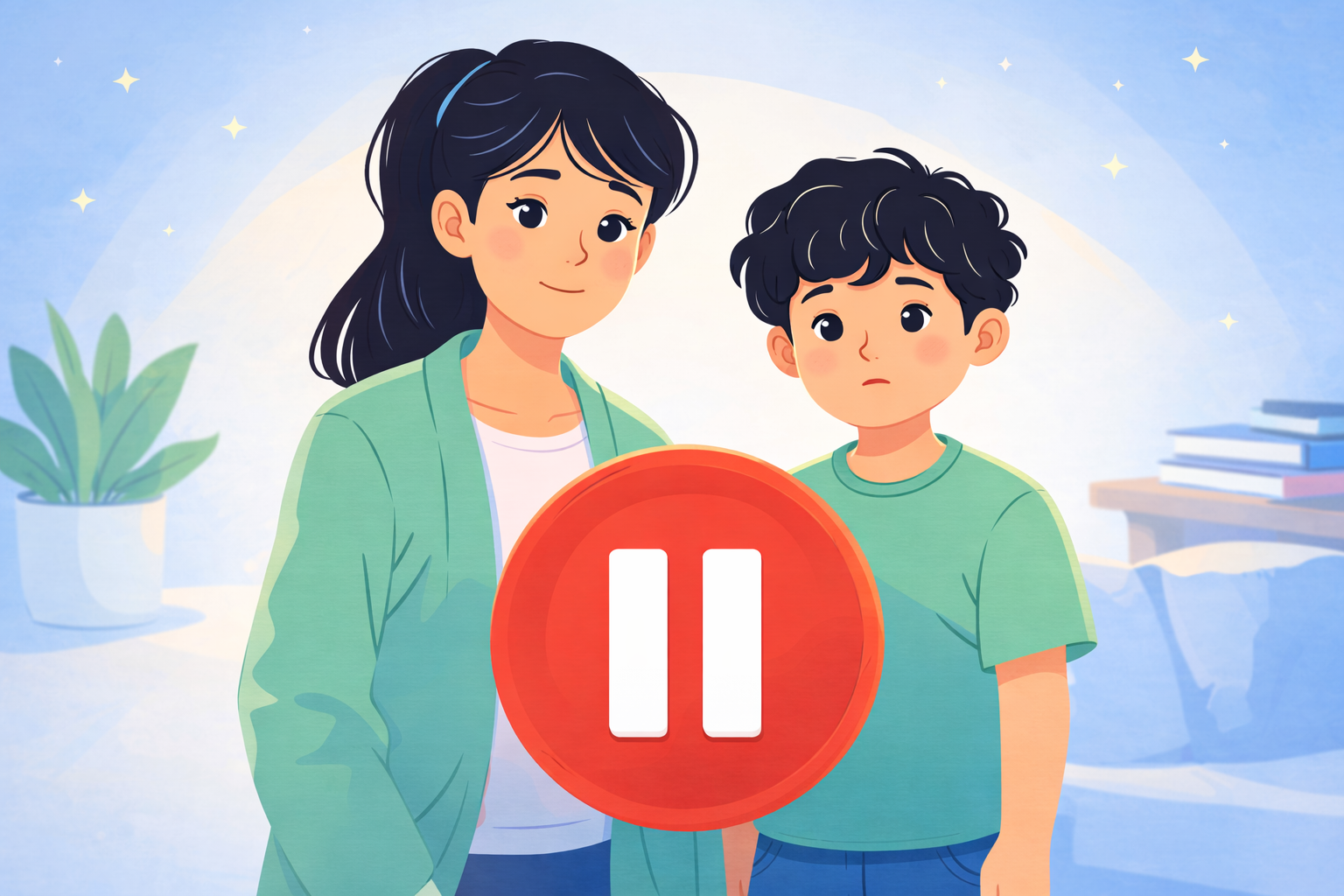Start with our AI Readiness Check
AI is already part of your child’s learning. In just a couple of minutes, discover where your family stands and what to do next.
- ✓ Your family’s AI Confidence Score
- ✓ What you’re already doing well
- ✓ Simple, practical next steps
We're living in a digital age where artificial intelligence (AI) is transforming our lives. It's not just for adults anymore; kids are also diving into the world of AI. From interactive toys that respond to voice commands to educational apps that adapt to individual learning styles, AI is making a significant impact on how children play, learn, and interact.
But what exactly is AI for kids, and why is it important? Let's delve into this fascinating topic and explore how AI can benefit the younger generation.
What is Artificial Intelligence?
AI, or artificial intelligence, is about making computers that can think and act like humans. These smart machines can learn from experience, solve problems, understand what they see, and communicate in words.
Lately, generative AI chatbots like ChatGPT and Bard have become the most famous uses of AI. They produce content according to a prompt provided by the user. Their output can be text, images, videos, and sound. Educational apps have started to build generative AI into their feature sets, albeit with mixed results.
For years, you've probably seen computer games talk about AI controlling their characters. These in-game characters move and react according to rules based on their surroundings. This method is rules-based AI and also has a place in education.
Both of these methods have flaws. Generative AI uses probability to form its output and can be completely wrong. Rules-based AI has to be built rule-by-rule by programmers limiting how complex it can be.
What are some examples of AI for Kids?
Let's contemplate some examples of how children interact with AI daily. These instances make AI less intangible and more graspable for the little, curious minds.
Interactive Toys – Toys are no longer the simple objects of playtime. AI-enhanced toys respond to voice commands, learn from interactions, and can even develop unique personalities. These toys can vary from cuddly bears to miniature robots!
Education Apps – Several apps employ AI to create personalized learning journeys for kids. Based on their progress, the AI algorithms adjust the difficulty levels, keeping them challenged yet interested.
Why is Learning about AI important for Kids?
Regardless of age, learning about AI is indispensable today. Why is that so?
- 21st Century Skills – Knowledge about AI can foster a better understanding of essential 21st-century skills such as critical thinking, creativity, and innovation.
- Tech Literacy – As future adults in a tech-driven world, understanding how AI functions will help them become better digital citizens.
- AI in School – With the integration of AI in educational curriculums, kids need to be comfortable with this technology.
- Assist Learners with Special Needs - Reading text, identifying objects for those with visual impairments, and helping people with dyslexia convert their thoughts into coherent writing are early starts but still impressive.
By learning about AI at an early age, you can better understand how to apply this tool to improve the world. It is clear that learning about artificial intelligence is important for kids.
How can Kids Learn about AI?
If you are looking to learn more about AI as a kid, there are several different ways you can get started! We are sharing some of our top ideas to learn AI as a kid.
1. Explore AI with Google
2. Educational apps using AI
Developers are constantly finding new ways of using artificial intelligence in education. Generative AI apps are producing custom stories to encourage kids to read more, letting kids converse with historical figures, and acting as virtual tutors almost indistinguishable from live tutors.
Adaptive learning platforms use rules-based AI to support learners and provide a more controlled and predictable learning environment than generative AI.
3. Adaptive learning platforms
Some apps use artificial intelligence to support learners by emulating what teachers aim to do: keep learning at the right level - kids who work on something too easy become bored and don't progress. When kids attempt something too tricky, they struggle and lose confidence.
Teachers and adaptive learning platforms try to keep kids working on material that they can understand with the support provided by teachers and apps. Eventually, this level becomes too easy, and it is the job of the educator to move kids on. We have a deeper
4. AI-based virtual tutors
Some apps provide virtual tutors. These Chatbots powered by technologies such as ChatGPT create a conversational feel to learning, making the content more accessible and the experience more stimulating.
Virtual tutors in language apps provide a natural conversational experience for learners who might not have anyone else to help them or provide practice opportunities. In math, virtual tutors can respond to specific questions, give new examples, and reword their explanations to help students understand.
They're not quite as good as a human tutor, but they are always available, convenient, and much cheaper. You can check our tutoring apps to find help kids learn about AI.
Can I use AI tools like ChatGPT in education for kids?
Generative AI is unpredictable. Huge and complicated software engines power it, which are so complex that they can sometimes surprise even their creators with their output. The material they use for training is vast in size and often includes questionable content plus, they often make things up.
We advise supervising kids when they use chatbots to mitigate their exposure to unsuitable content.
Your informed support can also improve their digital literacy skills by encouraging them to look for bias and false information. Ensure they understand that AI is a helpful tool but not a substitute for learning.
Does AI encourage kids to cheat?
AI does not encourage kids to cheat, but it could help them if they try. One response to this is to try to prevent kids from using AI, but that would also give up a learning opportunity. AI is not likely to go away, and knowing how to use it and its limitations all form part of kids' digital literacy.
Parent Conversation Guide
A short guide to help parents start calm, confident conversations about AI use at home.

